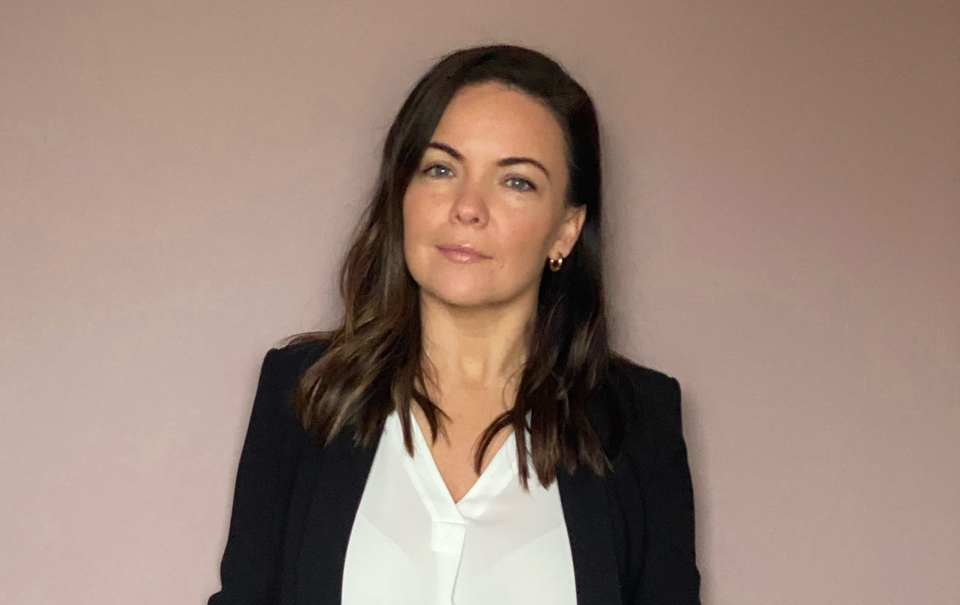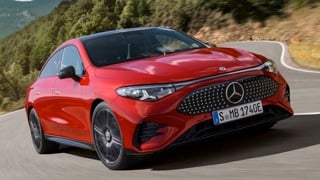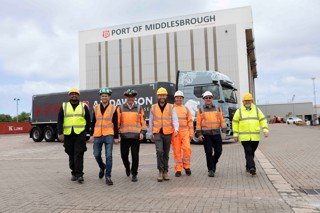Aggreko UK, the supplier of temporary power generation and temperature control equipment, has commited to be net-zero by 2050. It has set an even earlier target for its fleet, with all cars and commercial vehicles (CVs) to be net-zero by 2030.
Currently, hybrids comprise 68% of its company cars, while the journey to electrify its CVs is just beginning.
Vehicles accounted for 42% of Aggreko UK’s CO2 emissions output in 2020, making it a major focus for the business. The priority is for efficient and environmentally-friendly transport and travel.
To achieve net-zero by 2050, Aggreko has formed a working group looking at all areas of its operations including vehicles, the use of natural gases, fuels for its premises, refrigerant gases for units and electricity.
Following a two-month trial of a Ford Transit Custom van with a fully electric powertrain at its Washington depot, the company is looking to host further trials to gather data to investigate the best options for the business.
Sarina Vale (pictured), vehicle fleet manager at Aggreko UK, says: “We are reviewing our data and we will be relying on our fleet partners to provide us with support and guidance in terms of the expert outputs that we need to deliver electric vehicles (EVs) into the fleet.”
Vale doesn’t envisage an immediate switch to full electric, but by 2022 she aims to have at least 5% of the commercial fleet as either hybrid or EV and plans to phase in the new powertrain over the next nine years.
Aggreko UK, the supplier of temporary power generation and temperature control equipment, has commited to be net-zero by 2050. It has set an even earlier target for its fleet, with all cars and commercial vehicles (CVs) to be net-zero by 2030.
Currently, hybrids comprise 68% of its company cars, while the journey to electrify its CVs is just beginning.
Vehicles accounted for 42% of Aggreko UK’s CO2 emissions output in 2020, making it a major focus for the business. The priority is for efficient and environmentally-friendly transport and travel.
To achieve net-zero by 2050, Aggreko has formed a working group looking at all areas of its operations including vehicles, the use of natural gases, fuels for its premises, refrigerant gases for units and electricity.
Following a two-month trial of a Ford Transit Custom van with a fully electric powertrain at its Washington depot, the company is looking to host further trials to gather data to investigate the best options for the business.
Sarina Vale (pictured), vehicle fleet manager at Aggreko UK, says: “We are reviewing our data and we will be relying on our fleet partners to provide us with support and guidance in terms of the expert outputs that we need to deliver electric vehicles (EVs) into the fleet.”
Vale doesn’t envisage an immediate switch to full electric, but by 2022 she aims to have at least 5% of the commercial fleet as either hybrid or EV and plans to phase in the new powertrain over the next nine years.
“I’m sure the journey isn’t going to be completely pain-free. But I’m confident that whatever vehicles we have on board will suit our operating model effectively,” she says.
Aggreko’s fleet consists of 79 cars, from brands including BMW, Audi, Mercedes-Benz, Volkswagen, Volvo and Toyota & Lexus; 80 light commercial vehicles (LCVs); 45 4x4s and 80 grey fleet vehicles. Its annual fleet mileage equals approximately 2.3m miles, emitting 1.1m kgCO2e.
Vale described the fleet as ‘stable’ and doesn’t expect it to reduce or increase in size over the next two-to-three years.
“It’s natural for any business to experience loss of employees, but we would welcome anyone who wants to join our business at this exciting time. However, I don’t think it’s going to increase dramatically to make me overly concerned about where I’m going to source additional vehicles from."
Aggreko’s cars and commercial vehicles are currently fully managed by Lex Autolease, while the grey fleet is managed by The Miles Consultancy (TMC) via its Visa to Drive programme.
TMC checks whether grey fleet drivers’ insurance is valid for business travel and ensures vehicles are taxed and MOTed.
Aggreko leases its vehicles as it provides the business with budgetary control, VAT benefits and convenience. However, it always keeps its funding options under review.
“Contract hire is the most beneficial to us. That’s how our fleet is funded currently, however we are open to other funding methods, provided they meet our business requirements,” Vale adds.
Operating cycles
The operating cycle for Aggreko’s car fleet is around 48 months and 80,000 miles and 48 months and 100,000 miles for its LCVs and 4X4s, but the company takes a pragmatic approach to contracts.
“We set contracts based on actual activity to suit the role of our employees and we monitor them every six months,” Vale says.
“We are open to reviewing our operating models provided it suits our business needs and provides the benefits we require. We’re very receptive to new cycles and to review current practices.”
During the height of pandemic restrictions, Aggreko UK saw a significant reduction in miles driven and saw an opportunity to reduce its operating costs through re-contracting vehicle mileages. In 2021 alone, Aggreko has saved more than £11,000 through re-contracting its vehicles to generate rebates.
Last year, Aggreko worked with a team of consultants from Lex Autolease to review its fleet operation. A key part of the review was private mileage and how it reimbursed employees for using their own vehicles for business purposes.
The company found its policies to be outside best industry practices and made changes, switching from approved mileage allowance payment rates to advisory fuel rates.
As a result, this year Aggreko has saved more than £8,000 in fuel reimbursements.
The company has also generated savings from tendering its vehicle conversions and livery. It has saved £7,000, with this figure to increase over the next 12 months as Aggreko see new vehicles being delivered into the field.
It now works with Bott, manufacturer and supplier of in-vehicle equipment – a move that has shown significant savings across the fleet.
With Bott, the company has also recently introduced a new racking system to ensure any transported equipment is safely secured.
Global fleet strategy
Aggreko has its UK fleet strategy in place and is now in the process of creating a global fleet strategy with the goal of a harmonised operation in different countries and centralisation of how it manages the data.
“First, we need to understand how we operate globally as that dictates the activity I’ll be involved in. The data is the most important element, but understanding how fleets are managed in those countries is equally important,” Vale says.
“For example, how we manage our fleet in Senegal is completely different to how we would manage our fleet in Brazil. There are still localised practices and legislation that we need to abide by, but to give our support, expertise and time to help lead them into the harmonised operation, is the goal.
“The harmonised view of how we’re operating will be invaluable. From there we can make informed decisions about vehicle cycles and how they operate. It may be the case areas do not need vehicles and can have other forms of transport such as bus services. The data in a globalised fleet strategy is the most important thing, as it will allow us to move into other areas of development.”
The measurements of the global fleet strategy will be telematics data, reviewing driver behaviour, fuel loss, costs and sustainability based on miles per gallon (mpg).
To help develop the strategy, Vale has taken advice from leaders within Aggreko, considering their expectations, and she has also sought advice from industry contacts.
“There are several contacts I’ve connected with via LinkedIn and have openly asked questions about how they established their strategies, what worked well, what didn’t – nothing is off the table.”
“If we have a shared interest, I’m willing to engage with leaders who have gone through the process before, to gain advice and knowledge from them. We’re all in the same position in terms of our goals and challenges. Peers and contacts are where I gain my knowledge and support from and that becomes invaluable. People may have ideas that I don’t have and vice-versa, it’s really important to learn from each other.”
Having started as fleet manager at Aggreko in December 2017, Vale’s role has since evolved to incorporate global travel, overseeing contracts including air, hotel, rail and short-term vehicle hire.
Her priority is to ensure they are fit for purpose to support the business by implementing efficiencies wherever required, as well as managing supplier relationships.
“It’s equally challenging and exciting to be in such a role where there is so much change on the horizon, equally for both the fleet and travel categories. The way in which we work and travel is ever-changing, and the next three-to-five years I feel will be completely different to how we operate now,” Vale says. “But I’m ready for the challenges that lie ahead. My motto is to remain positive, have a goal and focus in mind and move with the times.”
Adopting autonomous safety systems
In the future, Aggreko aims to move into the realm of connected cars for the benefits, such as connecting with drivers in real-time, providing alerts and data-gathering, provided it is safe and legal to do so.
“Technology to connect with vehicles to see how they operate is very important to get ahead of the curve of any cost or any failures. In terms of mobility, there’s a long way to go. I don’t think that we’re quite there yet with introducing fully autonomous vehicles – that’s five-to-10 years in the future.
With the motto, ‘safety for life’, Aggreko places safety and risk management at the heart of its operations.
Though telematics and a dedicated quality, safety, health and environment (QSHE) department, the company monitors employee driving styles, allowing line managers to provide feedback to drivers through dedicated one-to-one sessions.
Telematics aside, Aggreko has a working time directive policy in place to ensure drivers are aware of their responsibilities in terms of safety and to make it clear where they can report any concerns.
Recently, the QSHE team has successfully reinvigorated the reporting system, to enable Aggreko employees to report vehicle incidents effectively using an in-house developed app.
Aggreko also ensures vehicles are ventilated and equipped to protect drivers from spillages, as well as making sure vehicles are fit for purpose in line with the job role of the employee.
“We give employees a ‘stop work’ authority. If it isn’t safe to work for whatever reason, report it and we will rectify whatever the problem may be,” Vale says. “We give our people the opportunity to report any real-time incidents and we will repair those as necessary.”
Vale also has a strategic monthly review with the QSHE department to identify any risks and issues regarding mpg and mileage.
Vale on... female leadership in what was a male-dominated industry
Sarina Vale has been involved in fleet since 2008. She started as a fleet analyst at HomeServe, where she progressed to the role of fleet manager. Prior to joining Aggreko UK, Vale had been fleet account manager at Carillion and fleet services manager at Palmer and Harvey.
She concedes it hasn’t always been plain sailing for her as a female in an industry that is stereotypically considered ‘male-dominated’, but she has enjoyed the journey.
“It’s been very positive journey; I’ve really enjoyed it. Fleet is quite varied, no day is the same, there’s always something to challenge you and with the remit of fleet management, there’s many different areas and projects that you can get involved in. I’m very lucky and proud to work and be supported by a business who are very dedicated to providing positive outcomes for our people and customers,” Vale says.
“In terms of my leadership style, I’m quite open and flexible but also strategic and democratic. For any females coming into the industry, stay strong, be confident, know your subject, have courage of your convictions, and deliver results.”
Seeking advice from peers
Along her journey, Vale has taken advice from her female industry peers to understand their journey, any obstacles they have faced and how they arrived at where they are now.
“In the past five years, more women leaders have entered the fleet industry; it’s fantastic to see,” says Vale.
“The ‘male-dominated’ industry is dispersing, and women are playing a key role in it. My advice to any young females coming into the industry is, if you can manage people on all different levels and set expectations for those leaders, it goes a long way. Then establish what type of leader you want to be.”
Login to continue reading.
This article is premium content. To view, please register for free or sign in to read it.
























Login to comment
Comments
No comments have been made yet.